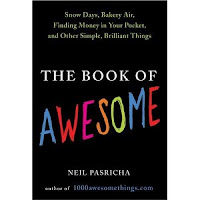Success is.....

Success, it is what everyone told us to strive for, what everyone says is the best thing to achieve in the world, it is what makes us and breaks us. Without success, we would be no where; but really, what is success? This is what John Wooden helps us define, what true success is. The stereotype for success in school is getting an A or B on everything that you do. Typically, if anyone got anything lower, students automatically thing, "Oh, that's the idiot kid." This is just the way that students today are raised. A point the Wooden makes is "The good lord .....didn't create us all equal as far as intelligence is concerned any more than we're equal for size, apperance." Not everyone in the world learns the same, takes in information the same, so not everyone in the world has the opportunity or ability to earn that A or B, not matter how hard they try. Yet, that's what defines our future, our grades in school. So, if I have bad grades, does that mean I am not successful?
Everyone in the world should have their own definition of success. Since no one person in the world is the same, success is going to be different for any person depending on who you are, where you are from, and who you grow up around. If you have strict parents who only accept A's, then anything less is going to be taken in as "unsuccessful" but what people need to start asking is, "Is this successful to me?" Even though every person has their own thinking of success, we all have one big idea; to achieve something that has been hard to get to for yourself.
While playing a sport, the goal of the game is to win, and beat the other team. If you do not win, you're team is considered unsuccessful. I am a lacrosse player, and when we play a game and do not win, it's frustrating. Everyone becomes upset and mad, even if we played to our full potential, to most people all that matters is the score. This is another way that kids today are being raised. But what really matters in games and practices, is effort. And not just in games and practices, but in everything that people do. When teams start to get down, they give up. But what we have to realize is that there is always a chance to have a come back, you have to play your hardest till the end, and most of all, you have to want it. Which ever team wants it the most is going to get it in the end. If I'm the worst one on my team but I try my hardest, then
I say I deserve to be out there and maybe I don't score a lot of goals but maybe a make a good catch or throw, and that is what I would consider success. People may tell me I'm a terrible athlete, but I would just tell them, "Hey, I'm trying my best, putting out my best effort." And in the end, that's all that really matters.
Society today is growing up with TV, magazines, movies, and in all of these are glamorous, flawless people. We tend to not see what real life people look like and strive to be more like them. To us, they are the successful ones in life, they have it all. (Again, another way children today have grown up with and been taught.) But we need to learn to never try to be someone else, never try to be better than someone else, but instead learn from others and be PROUD of who YOU are. Don't let anyone tell you who you should be. That's all up to you. You can't tell anyone who you should be and you also can't tell anyone what success to you should be. You choose your success and you choose where you go in life. In the end, it's all up to you.
Through out life, people have success every day, and failure every day. What's everyone's success? Well, that's a good question, because it all depends on the person. John Wooden's definition of success is, "Peace of mind attained only through self-satisfaction in knowing you made the effort to do the best, or what you're capable of." As long as you put your best efforts forward, and do what you have the potential to do, you have succeeded. Since everyone in the world can't have the ability to earn an A, how do we determine success? I think that this is still trying to be figured out today. In life, according to Wooden, "(We need to) give people something higher to achieve than just a 'mark on the paper.'" We need to understand that for some people, a C is a success. In order to achieve it, we need two things, patience and faith. We must believe in what we do and we must believe that things will all work out in the end. Something that a lot of people don't realize is that, "The journey is better than the end," said John Wooden. Success is, well I can't tell you. I could give you the definition, I could give you my opinion, but you need to figure out what success is for you. So now, you can tell me, what's your definition of success?

John Wooden created his own pyramid of success. He uses traits that lead up to success. What's on your pyramid?
Works Cited:
180 Tech Tips. Web. 27 Apr. 2011. .
Web. 27 Apr. 2011.
"Wooden on Leadership by John Wooden and Steve Jamison - Leadershop @ LeadershipNow.com." Leadership Development - News and Issues @ LeadershipNow.com. Web. 27 Apr. 2011. .
"Wooden on Leadership by John Wooden and Steve Jamison - Leadershop @ LeadershipNow.com." Leadership Development - News and Issues @ LeadershipNow.com. Web. 27 Apr. 2011. .











